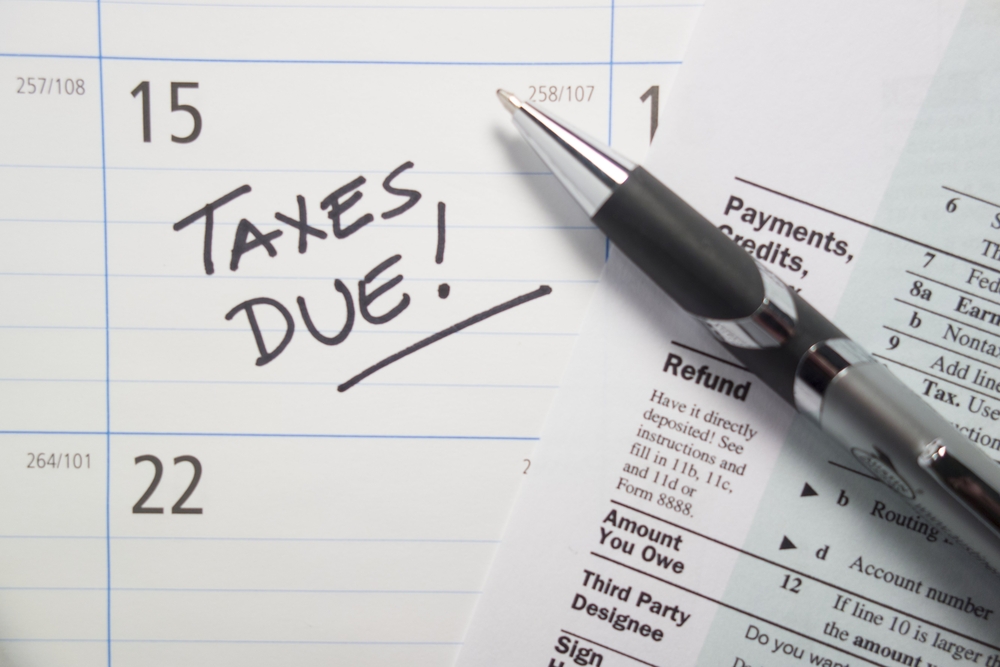How can real estate investors slash their income taxes this year?
April 15th is looming around the corner. Fortunately, there is still time for a few smart last minute financial moves to reduce the amount you’ll owe on your 2014 income taxes and real estate investment earnings. For those that have already filed and don’t want another tax bill, consider some of the following moves to slash exposure in 2015:
Open an IRA: There is still time to open an IRA and shave taxes for 2014 (if you haven’t filed your income taxes yet). It’s always smart to talk to a CPA or professional tax accountant first to see if, and how much this might help you trim from your tax bill. Still, all will find it a smart move in the right direction, which provides potential for additional savings each year. For those real estate investors who are tight on time and without the bandwidth to really dig in and choose what to invest this money into, most banks offer simple options for opening a retirement account and getting started in the right direction.
Get a Self-Directed IRA: Those real estate investors that already have an IRA or 401k shouldn’t forget to maximize their contributions for the year. Everyone should also be able to roll existing retirement accounts over into self-directed plans. This is one of the best money moves real estate investors can make. A self-directed IRA allows investors to invest in real estate opportunities of their own choice, while retaining all of the benefits of retirement accounts. That means higher net returns, more safety, and again – more tax breaks.
Get Health Insurance: It shouldn’t be a secret to any real estate pro that this is the year the government will start assessing financial penalties to those that don’t have healthcare coverage. This will be applied when individuals file their taxes. The government has extended the sign up period for Obamacare to ramp up more signups. Some new real estate investors may find they can get some help via HealthCare.gov. Most will find they are making way too much money to qualify for any monetary breaks. Still, far too many independent real estate professionals and their families remain uncovered. No one wants to both be without coverage and be penalized for not having it. Some may be able to obtain coverage through their spouse’s plans at work for another employer. Others will have to do more shopping around.
Work with the IRS: For those that don’t have the cash on hand to pay their taxes owed, or that owe back taxes, it might be time to try to work it out with the IRS. The tax service and government is still poorly strapped for cash and proclaim that they are eager to work out deals to get individuals back on track and in the program. This may include accepting a lump sum settlement at a significant discount, or working out an installment payment plan. Unless investors plan to stay off the radar for ten years and until the collection period has passed, most will find they only accrue more penalties and tax debt by avoiding the situation. Not paying can also mean being burdened with a federal tax lien which can make borrowing difficult and can lead to property being seized. However, it is also important to note that just because the IRS says they will postpone such actions if you try to work with them, it doesn’t mean that they will. Be careful about what doors you open unless you are prepared.
Form LLCs: While this might not help for the tax returns investors are filing right now it can help reduce the estimated payments they need to make to the IRS each quarter, and how much they’ll owe next year. Operating under LLCs and other corporate entities can not only provide property investors with more safety and privacy, but can potentially add a whole extra level of tax deductions. Since you should be using these tools anyway, why not get one and save money on taxes too?
Finance or Refinance a Home: Some may find it surprising, but there are real estate investors that don’t own their own homes. Buying a primary residence in the right place can help protect assets from IRS seizure and lawsuits. Mortgage interest paid and some closing related costs can also be tax deductible. For the wealthy this is one of the biggest tax breaks available, and why they splurge on such expensive homes. Holding a property free and clear of a mortgage can be extremely counterproductive when it comes to tax time. So consider buying a home, bigger home, or refinancing.






